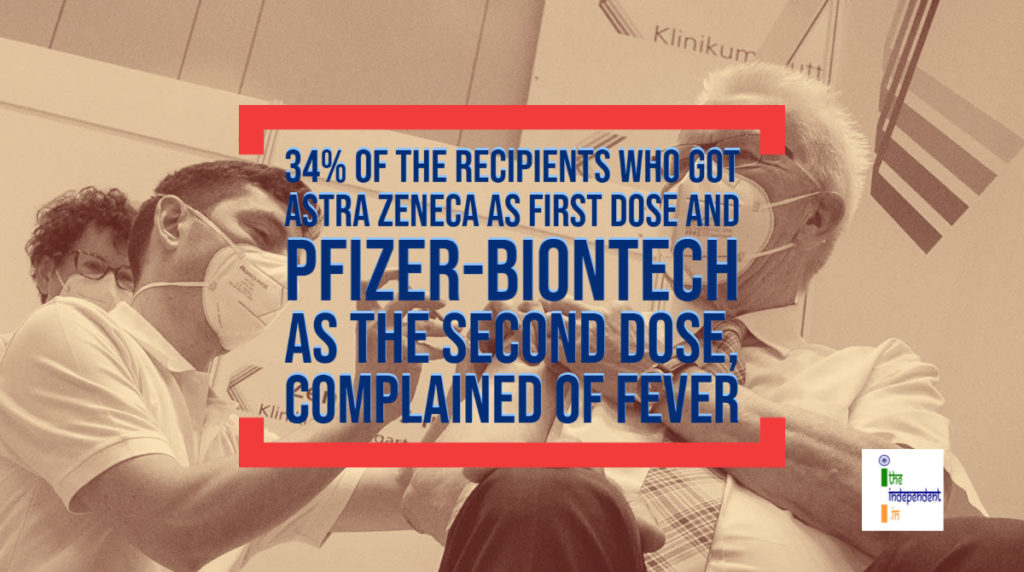
Researchers in the U.K. have found that people getting different doses of COVID-19 vaccines are more prone to side effects
The researchers in the United Kingdom (U.K.) have found that people who received mixed doses of Coronavirus (COVID-19) vaccine are more prone to experiencing side effects such as fever, chills, fatigue and headache.
The side effects were visible within 48 hours of receiving the second dose. The researchers proposed the medicine ‘Acetaminophen’, sold under the brand names of Tylenol, to treat the volunteers. Notably, none of the volunteer required hospitalization.
These side effects were short-lived and there were no other major risks involved with mix-matching 2 different doses of COVID-19 vaccines. The researchers did not find any case of blood clot.

Addressing the media, the Associate Professor of Paediatrics and Vaccinology at the University of Oxford and Chief Investigator on the trial – Dr. Matthew Snape said, “These are the type of reactions you do expect with vaccine.”
He further added, “They are more or less the same types of reactions that you’re seeing with the standard schedules. It’s just that they’re occurring more frequently, and we’re seeing both more frequent both in mild and moderate symptoms — but they resolved quickly.”
The latest trial was conducted on 830 volunteers who were above 50 years of age. They were randomly given 4 different vaccine schedules involving the AstraZeneca vaccine and Pfizer-BioNTech’s vaccines.
The 4 different schedules included AstraZeneca vaccine as both doses, AstraZeneca as a first dose and Pfizer-BioNTech’s vaccines as a second dose, the Pfizer-BioNTech’s vaccines as both doses and Pfizer-BioNTech’s vaccines as a first dose and AstraZeneca as a second dose.

The researchers also found out that 34% of the recipients who got Astra Zeneca as first dose and Pfizer-BioNTech as the second dose, complained of fever. Only 10% of people who got both the doses of AstraZeneca had fever. People with fever who got and Pfizer-BioNTech as the first dose and AstraZeneca as the second dose were 41%. Fever amongst people getting both doses of Pfizer-BioNTech reported was 21%. The difference between the 2 doses was of 28 days.
These findings are based on the initial data. More research is needed to evaluate immune responses following different types of schedules and whether increased side effects suggest that schedules using different types of vaccines elicit strong immune responses.
As a next step, the researchers will study the response on volunteers by giving them Moderna vaccine and Novavax vaccine.
Presently, the World Health Organisation (WHO) and the United States (U.S.) Centers for Disease Control and Prevention do not recommend giving alternate doses of the vaccine.







